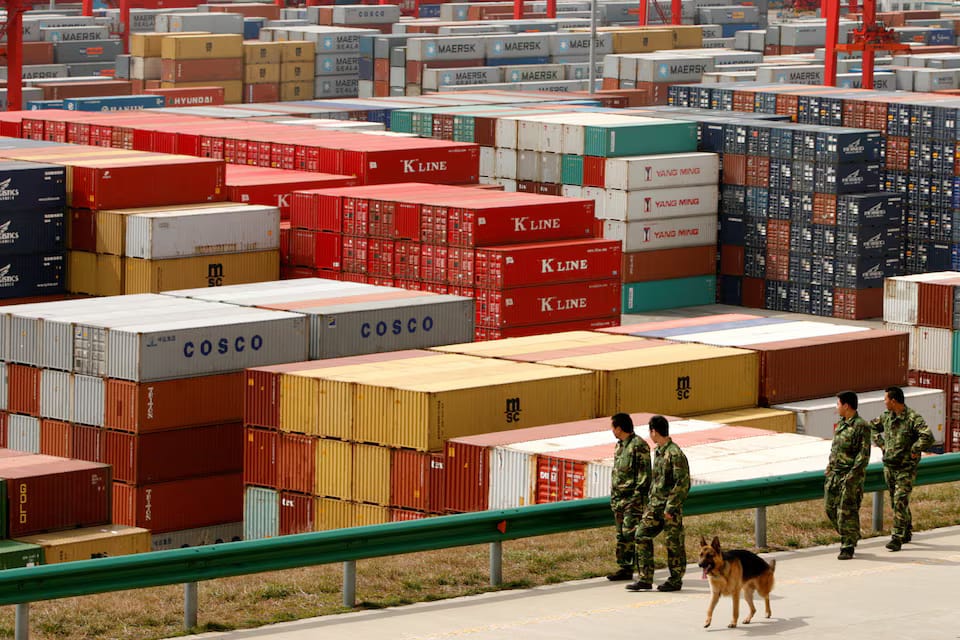In the wake of President Donald Trump’s latest salvo in the ongoing U.S.-China trade war, Chinese manufacturers are scrambling to keep their heads above water. From tableware to flooring, companies across various sectors are warning investors of tumbling profits, while rapidly revising strategies and accelerating offshore expansion to survive the economic storm.
Trump’s recent introduction of a staggering 34% tariff on Chinese goods—on top of earlier levies—has brought total tariffs on China to 54% this year alone, sending shockwaves through global markets. While some Chinese firms have downplayed the immediate impact, corporate filings reveal a different picture: emergency plans, supply chain pivots, and tense negotiations with price-conscious customers.
For many Chinese exporters, the blanket tariffs are threatening to unravel long-standing supply chains. Their typical counter-strategies—such as relocating production abroad or boosting sales to other international markets—are being severely challenged.
“It’s like throwing darts blindfolded,” said Larry Sloven, a veteran U.S. retail supplier who has worked with Chinese manufacturers for over three decades. “You don’t know what direction you’re going in. Once the hammer drops, you don’t know where it’s going to fall next.”
Firms operating on thin margins are bearing the brunt of the crisis. Fuling (001356.SZ), a major supplier of eco-friendly tableware to fast-food giants KFC and McDonald’s, admitted this week that tariffs will “further negatively impact the company’s operations.” Previously hailed as a “manufacturing champion” by Zhejiang authorities, Fuling is now fast-tracking plans to set up a new production facility in Indonesia to offset its China-based losses. However, until the plant is operational, profitability is expected to suffer.
Earlier tariffs—such as a 20% duty imposed earlier this year—had already begun squeezing profits. U.S. clients reportedly asked the company to absorb part of the cost increase, further deepening its financial woes.
Electric vehicle component manufacturers are also reeling. Lopal (603906.SS), which supplies key materials for lithium batteries, has announced intentions to establish another overseas plant to mitigate the fallout.
Meanwhile, Tianzhen (301356.SZ), a flooring products company, flagged concerns about its U.S. factory plans. Despite targeting a capacity of 20 million square meters, its reliance on tariff-impacted foreign raw materials and equipment could derail expansion.
The U.S.-China economic standoff shows no sign of cooling. Beijing vowed to “fight to the end” after Trump threatened yet another round of tariffs—this time a 50% duty in retaliation for China’s own countermeasures.
In anticipation, some companies are turning to scenario planning. PXI Auto Components (301560.SZ) shared detailed projections with investors, estimating profit losses of 11 to 22 million yuan (around $1.5 to $3 million) if they absorb 5-10% tariffs based on last year’s earnings. The firm is leaning on its overseas operations in Mexico, the U.S., and Spain to cushion the blow.
Other manufacturers are pursuing more traditional tactics. Hosemaker ZYfire has responded by stockpiling inventory and renegotiating pricing with customers to soften the blow of higher levies. Meanwhile, Ningbo Gangzetong, a logistics firm serving Amazon vendors, issued a stark warning: all previously quoted shipping prices are now void due to the new tariffs. Though its social media post on WeChat was later removed for “violating platform rules,” the message was clear—this time, the company can no longer absorb the rising costs.
“As in previous rounds, we tried to shoulder the burden ourselves,” the company wrote. “But this time, we are left with no choice but to make necessary adjustments.”



